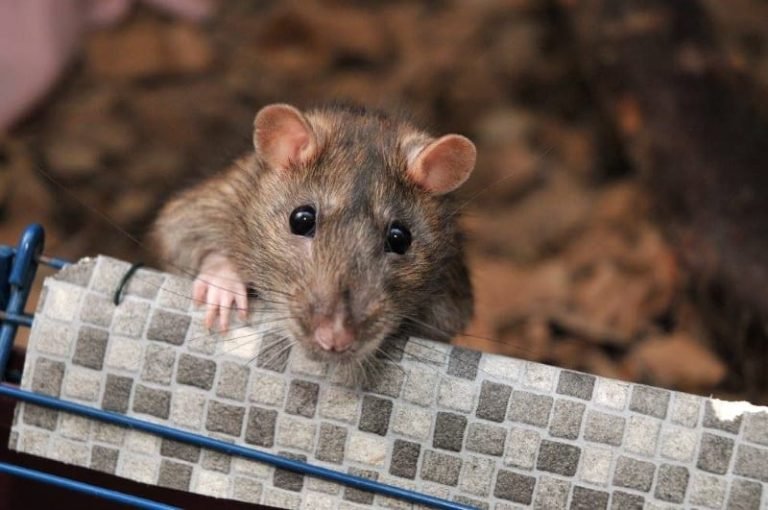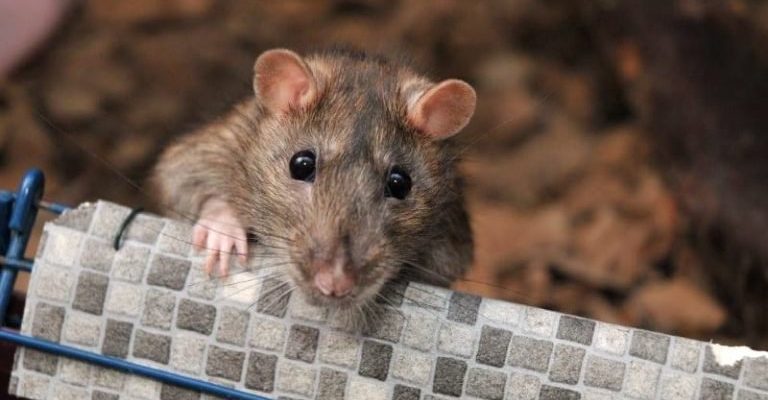
Understanding hooded rats’ unique needs is crucial. With their playful nature and loving personalities, they’ve quickly become popular pets, but many new owners might not be aware of the potential health issues that can arise. From respiratory problems to dietary concerns, knowing what to watch for can help you catch issues early and keep your pet happy. Here’s what you need to know to provide the best care for your little buddy.
Respiratory Issues: A Common Concern
Hooded rats are particularly prone to respiratory problems. This is often due to their sensitive lungs, which can be affected by poor living conditions, like dusty bedding, drafts, or smoke. When you notice your rat sneezing, wheezing, or having difficulty breathing, it’s essential to act quickly. These symptoms can escalate quickly, leading to severe respiratory infections.
Prevention starts with creating a clean and safe environment. Use bedding made from paper or aspen shavings, avoiding cedar and pine, which can irritate their lungs. Make sure the cage is in a well-ventilated area, away from tobacco smoke or strong perfumes. Regular cleaning will help eliminate dust and odors, making the air cleaner for your furry friend.
If you see troubling signs like labored breathing, consult your vet immediately. They may prescribe antibiotics or nebulizer treatments to help. Here’s the thing: catching these issues early can make all the difference between a quick recovery and a more severe health crisis.
Dental Problems: More than Just a Nibble
Dental issues are another common health concern in hooded rats. Their teeth never stop growing, so they need constant chewing to keep them trimmed. If their teeth become overgrown, it can lead to pain and difficulty eating. Look out for signs like drooling, weight loss, or a change in eating habits.
To prevent dental problems, provide plenty of chew toys made from wood or safe materials. You can also give your rat fresh fruits and vegetables, like carrots or apples, which help wear down their teeth naturally. Just remember to introduce new foods slowly to avoid tummy troubles.
Regular check-ups with your vet are vital too. They can check your rat’s teeth and suggest trimming if necessary. Let’s make sure that little snacker can munch happily!
Skin Issues: Itchy Business
Just like humans, hooded rats can suffer from skin problems. These can appear as bald patches, sores, or excess scratching. Sometimes, these issues stem from parasites like mites or fleas, while other times, allergies might be to blame. As a caring owner, noticing any unusual skin changes can help you intervene early and provide relief.
To prevent skin issues, keep their living area clean and free from parasites. Regularly check for signs of fleas or mites, especially if you have other pets. If you suspect an allergy, try changing their bedding or food to see if symptoms improve.
If your rat seems overly itchy or develops skin problems, consult your vet. They may prescribe topical treatments or recommend dietary changes. After all, your furry friend deserves to be comfortable and free from discomfort!
Obesity: A Growing Problem
Obesity is a sneaky health issue that can affect hooded rats if they don’t get enough exercise or if they have an unbalanced diet. With easy access to treats, it can be tempting to overindulge our pets. However, carrying extra weight can lead to health complications like diabetes or heart disease.
Encouraging playtime is essential! Create a fun environment with tunnels, climbing structures, and toys to stimulate your hooded rat physically and mentally. Spend time daily interacting with them; they love to explore and will thrive on your attention.
Also, pay attention to their diet. Offer a balanced mix of high-quality rat pellets, fresh fruits, and veggies while limiting fatty treats. Keeping an eye on their weight through regular scales or visual checks can help you ensure they stay fit. Honestly, a little prevention goes a long way in keeping them spry and lively!
Digestive Problems: Tummy Troubles
Hooded rats can also experience digestive issues, such as diarrhea or bloating. These can be caused by sudden dietary changes, eating spoiled food, or even stress. You might notice your rat acting lethargic or having unusual stools—these can be signs of an upset stomach.
To help prevent digestive problems, introduce new foods gradually. Stick to a consistent diet that’s rich in fiber to promote healthy digestion. Fresh veggies like peas and leafy greens can be great, but avoid sugary fruits and human junk food that can upset their delicate systems.
If your rat shows signs of serious distress, like prolonged diarrhea or refusal to eat, contact your vet right away. Finding out what’s causing the issue is key to getting your pet back on track, and it helps to keep their tummy happy!
Caring for a hooded rat can be incredibly rewarding, but it also comes with some unique challenges. By being aware of common health concerns and knowing how to prevent them, you can provide your pet with a joyful, healthy life.
Remember, a clean habitat, a balanced diet, and regular vet visits are key components of good health for your little friend. With a little attention and love, you can ensure that your hooded rat lives a long, healthy, and happy life. So go ahead, engage with your furry companion, and watch them thrive!

